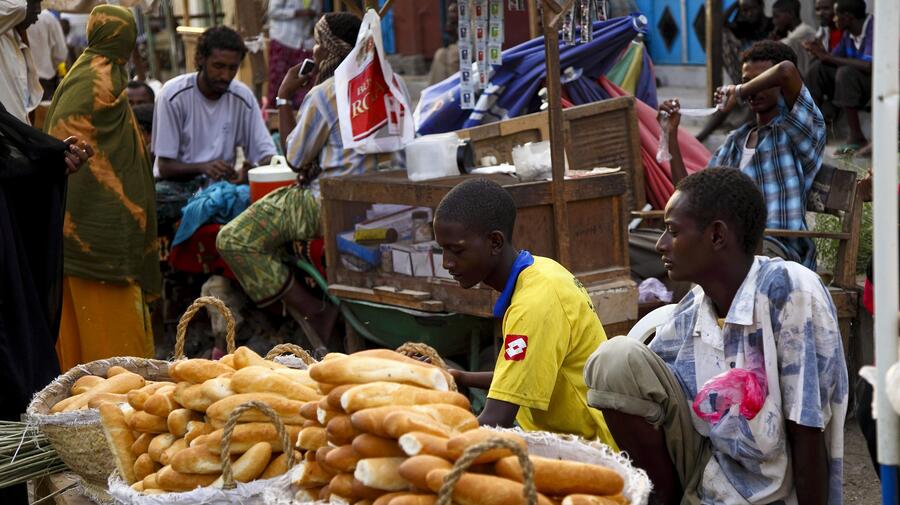Attack on care home brings new dangers for refugees in Yemen
Attack on care home brings new dangers for refugees in Yemen

The market place in Basateen, the Somali-majority area of Aden in south Yemen has a mix of food stalls, qat sellers and craftsmen.
ADEN, Yemen, April 7 (UNHCR) - Ethiopian refugee Nouria believed she would finally be able to live in peace when, at the age of 63, she moved into a care home run by the Missionaries of Charity in the Yemeni port of Aden earlier this year. She was wrong.
Gunmen burst into the home in March and shot dead 16 people, including four Ethiopian asylum-seekers and one refugee, who were employees at the home.
Traumatised, Nouria survived the attack but is still struggling with the psychological effects. "I still suffer flashbacks and nightmares," she said. "When I recall the attack, I often faint. I am scared of staying at home alone."
She has returned to the Kharaz refugee camp, where she lived for 15 years before moving to Aden.
Nouria is one of more than 260,000 refugees of various nationalities in Yemen. She originally fled Ethiopia years ago because of political instability and settled in the Kharaz camp, in Yemen's Lahij governorate, which houses about 18,000 refugees.
However, without family members to support her, she found life a struggle. In September 2015, she moved to Basateen district near Aden, seeking a better life and hoping to obtain medical assistance, but ended up living on the street.
UNHCR, the UN Refugee Agency, and its partner InterSos, a non-profit agency that works with the survivors of the conflict in Yemen, found a place for Nouria at the care home for the elderly, where she would be able to receive medical and psychological care.
At the time of the attack, three refugees and four asylum-seekers were living in the care home. Nouria was one of two women refugees who survived.

Nouria, 63, remains traumatised after gunmen overran the care home where she was trying to rebuild a shattered life.
"This is a terrorist act that targeted innocent people and refugees," said refugee community leader, Abdulbasit, who helped arrange the burials for the Ethiopian asylum seekers killed in the attack. He said the refugees lived in fear of another attack. "Nowadays, we avoid gathering at one place for the fear of being attacked."
Security in Yemen has deteriorated since fighting there intensified in late March 2015, and tens of thousands of refugees and asylum-seekers in urban areas decided to move to other parts of the country. Many returned home in the past few months after some stability returned to the province (governorate) of Aden.
In recent weeks, however, security in the city has again deteriorated and the refugee communities there feel a growing sense of despair. Many have lost their livelihoods and are afraid to travel, yet cannot return to their home countries.
More than 21 million people - 82 percent of Yemen's population of more than 26 million - are in need of protection or humanitarian assistance and a further 173,000 have sought safety abroad.
That was not an option for Nouria.
Yemen has historically been a transit hub for refugees, asylum-seekers and economic migrants from the Horn of Africa, the Arabian Peninsula and beyond. Although it is the poorest country in the Gulf, it has been exceptionally generous towards refugees. It is the only country in the Arabian Peninsula that has signed the 1951 UN refugee convention and its 1967 protocol.
The attack on the care home has left Nouria once again without a safe place to call home. Although now back in the Kharaz refugee camp, she has no family members or relatives to take care of her. "I want to find a place where I can feel peaceful but right now," she said. "I don't have anywhere else to go."
By Tiffany Tool and Soojin Hyung, Yemen








